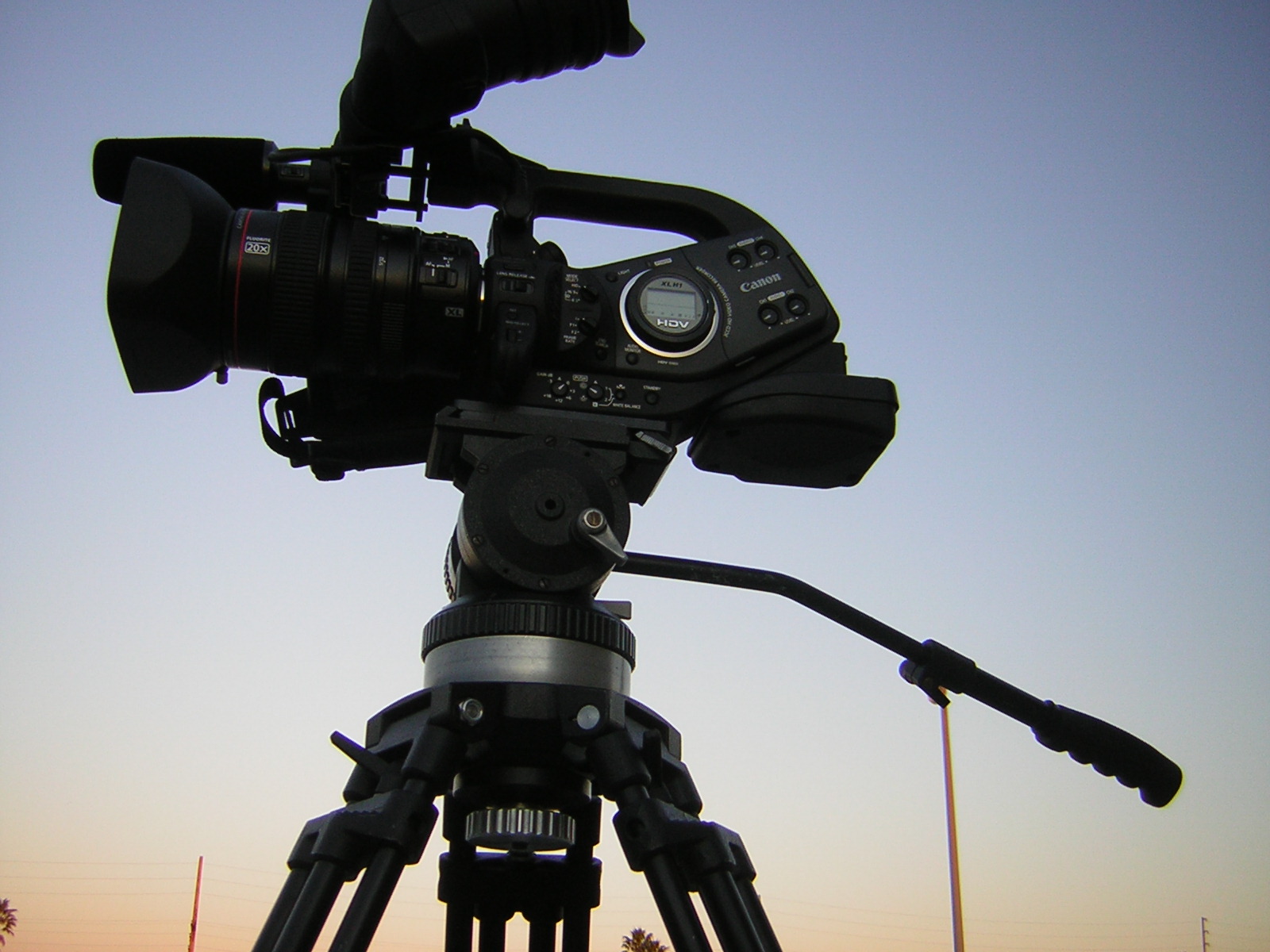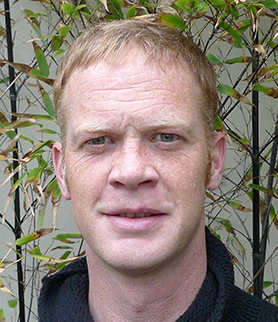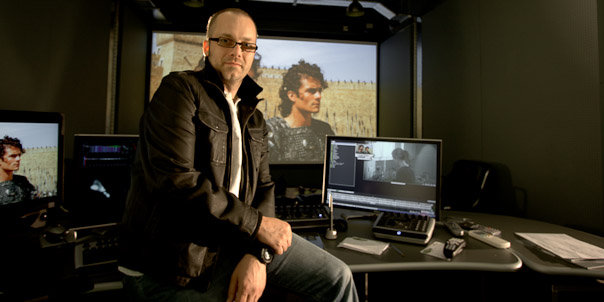ASK & DISCUSS
INDEXIf you have no Funds, does that you mean can't get into Filmmaking?
12 years, 8 months ago - Matthew Prince
Hi,
Hi, I'm trying to start a discussion about how to get into Filmmaking with virtually no money. Right now, I cannot even afford to go to all of the seminars, talks, presentations and festivals that are advertised throughout the year. I'm only going to one this month as it costs £10! (The BFI Future Festival)
Even when I could afford to go to courses and talks years ago, I found them ineffective or disorganized. A lot of the people at them are like me, excited about filmmaking, but on the outside looking in. Like me, they pay good money to listen to stories and watch old footage, yet go home feeling none the wiser.
I also tried to set up several Filmmaker networking nights in city centre pubs but they kept failing. I hoped to bring people together, because as a writer, I have written several shorts and would love to make them, but now I know it would be rude to ask local working filmmakers to work on them for next to nothing. It seems people won't come out their house unless alcohol or hard cash is involved, sometimes the two!
I don't want to spend what little money I have on more expensive seminars and talks. All of that is a rip off, an industry created around "the industry".
Can anyone give any advice or pointers as to how they got into filmmaking, not from filmschool, but maybe unemployment or changing careers?
I'm sure people have been where I've been!
Matthew P
Only members can post or respond to topics. LOGIN
Not a member of SP? JOIN or FIND OUT MORE
12 years, 8 months ago - Paddy Robinson-Griffin
Short film production is a rich man's hobby. Nobody will make a short for free, there is no back-end cash on shorts, they never (well, approaching never) turn a profit. Camera hire, lighting, sound kit, electricity, catering, locations, transport, crew etc all cost real money. Industry people might do a favour for a day or two, but you need to know them well enough to ask and still cover their costs. Shorts make you a better writer/director and give you a calling card, but the crew get very little from it if anything.
People do not pay to watch short films. It is hard work getting people to watch free short films. You may even need to pay people to watch them (well, free booze anyway) as shorts are often indulgent and over-long, people have better things to do with their time than watch 20 dull films waiting for a good one. Look at how fast TV drama moves - look how much story is covered in the first few minutes of a modern TV drama, then how ponderous and plodding most shorts are. Then 3 mins of end credits for a 5 minute film...nobody cares! Get in, tell the story, get out - make shorts actually short and you might get more views.
There are some useful seminars out there - Elliot from Raindance will be happy to hear I came away from one of his many years ago having learnt stuff I have used since, and made a couple of shorts with a guy I met at it. The advantage of long-course film schools is that they have kit and like-minded students, so the good schools get you making film after film to get experience. The disadvantage is that most are incredibly expensive when you can get real-world experience for free.
How do you get training and experience for free? By getting onto set/location and working for expenses. Look at the 'collaboration' section of shootingpeople and you'll always see ads wanting crew. Either look for local runner roles, or email whoever advertised the other roles asking if you can come and run for them for expenses. Get on the ground and see what it's really like. Some people think it'll be glamorous and exciting (it isn't, it really isn't) and they're generally the ones who get very little out of seminars yet who those seminars are targetted at. It's hard, dirty, late, tiring work. It's incessant. 12-hr days are to be expected. You'll work tired and grumpy with other tired and grumpy people, there are no glamorous showbiz parties, it's a hard lifestyle. Start as a runner, and you'll see all the departments in action and you'll see if any actually interest you. You may well find you hate life on location, in which case it may not be the industry for you!
The hardest jobs to get into are the creative ones - direction, scriptwriting, etc. Everyone has a story inside them and feels the world will care if they tell theirs. The only way your scripts are likely to get made is if they're either *incredible* (and you can get someone to read them and finance them), or you pay for them yourself. There are a few (very few) grants around, but the reality is you work in another industry and save your money up to fund their production.
I have seen a lot of film-school and media studies students arrive on set/site/location certain they know it all just to be stunned how little they have learned in actual skills terms. If you divert any money you'd have spent on film schools etc into subsidising your life whilst you get onto as many sets and locations as possible, it'll get you under peoples noses, get you experience, get you known as a hard worker, get you known as someone people want to work with, then that'll lead to entry-level paid work in a department with a career progression. People in the industry reward merit and determination over degree qualifications big-time.
Hope some of that is helpful. It's my view only from having crossed over from IT back to Entertainment production. It's hard work but doable. Stick with it.
12 years, 4 months ago - NICHOLAS PROSSER
Hi Matthew,
I’m afraid I don’t have any clear answers to your question because I too am looking for a way to produce short films with no resources. However, I do have experience on my side as a television drama director with more than 400 broadcast credits plus considerable additional experience as a producer, albeit on soap operas. So far I have written screenplays for four very different short films because this was the suitable genre for these particular stories. Despite my background and partly because of my mature years, I am currently struggling for ideas to find an open window with resources to calling action on these projects. .
Regretfully, shorts have no regular viewing arena, either in cinema or on television. Perhaps it is to their disadvantage that they have been labelled as the calling card for “new young” film makers and consequently it seems that unfortunately it is only through educational establishments or self funding that these screenplays generally find a green light.
On the career front, I agree with some of the advice that has already been provided. The advantage nowadays is that there is a wealth of schools, courses and workshops to provide the knowledge of “HOW TO.” Of course these cost so deciding if they are for you and which applies to you is very important. However, first be clear about what you want to do – writer, director, producer, operator etc. Then establish what section of the industry you want to work in – television drama, feature film etc. Then find a way to talk to those with the appropriate experience before identifying an entry door and a staircase to climb. Don’t expect to be catapulted straight to the level at which you want to work without some time spent in another capacity, learning about the business and indeed the job you have selected.
If you want to discuss this situation further write to me with all your contact details on e-mail Nicholas.Prosser@gmail.com and, if I think I can contribute, then I will come back to you.
12 years, 4 months ago - Joe Wilkes
I agree with lots of the points here. I'm in a similar position and would love to make a career shift in favour of film. I have a mortgage and I live in London, which is a financial money pit. So I have to balance two lives, one of them for income, the other for love. Everyone I speak to says the same thing, "you need another way of making a living". You need to differentiate between the two (economic need/creative fulfilment) and identify the reasons why both are important to you. It's not failing to slog away in an office for a bigger percentage of your time (I do) if it affords you some time off each year to follow your passion. If your scripts are good enough, beg, borrow and steal, but bring them to life. Do it for the reward that is the final cut, not the financial return. Getting involved on-set is currency in itself, it helps in working out exactly where in the industry your skill set is best placed, and the contacts you make are invaluable. Looking at the people I work with sometimes, I'm sometimes envious, but they most likely all started out like me at some point. It's hard graft and tough on the wallet, but I wouldn't change a thing! Good luck...
12 years, 4 months ago - Liza Bolton
Hi Matthew
I agree with Wozy Warren. I have made 5 short films in the last 12 months and a few have made it to competition / short list. I raise money where I can from working on other films or temping in offices. You can screen shorts lots of places, e.g. Kino open mic each month, get feedback, meet other film makers. It is def possible with low / no budget. Other than that, using friends, favours for locations, there are loads of options. Just make one and you will see how much work it is but how addictive it is. Good luck with your shorts.
12 years, 4 months ago - Ross McElwain
Oh, and the other point of course is that many good actors are prepared to work with you for expenses only - as long as you make this clear at the outset. The thing to do is send them a letter explaining that they would be a 'volunteer' rather than a paid worker, otherwise you would legally have to pay minimum wage (which can mount up). Then if you have any money to give them you could give them a per diem, ie a token payment of your choosing.
Actors want to act, and I've worked with many good and successful ones in these weekly sessions, just because they really get a lot out of the practice too.
12 years, 4 months ago - David Kline
Short films are about learning and developing your craft and testing ideas before - or as - you move onto feature films. There is little money available for feature films in the UK and almost certainly none at short film level, so keep costs to a minimum (keep your ideas simple and inexpensive) and rely on the good will of others trying to break in to the business as well as collaboration. Spending money on courses, talks and seminars is largely pointless as you rightly suggest. If those people running such events are so busy and successful in film they would not have time to be doing the 'sideshow' stuff. The adage 'nobody knows anything' applies more than ever to film. In other words, nobody knows what will be a hit, all the right elements happen to come together and coalesce - script, cast, production. So in some ways it's a meritocracy, you just have to keep writing, shooting, improving and trying.
12 years, 6 months ago - Lee 'Wozy' Warren
Hi Matthew,
This is a question that we have all asked at one time or another in the early days of our careers as a filmmaker. To be honest, you have to make your own opportunities and it sounds like you have been trying that so that’s a good start. Then you have to keep doing it, over and over and over....
What do you want to do in the industry? You have said that you are a writer. What do you write and how good are you? You also say that you want to make some films so I assume that you want to direct. Well the only way to get directing experience is to direct stuff... Write a simple story, but a good story and get some mates together, use your mobile phone if you have to and make the film. There are no excuses these days as to why people can’t film stuff. Back in my day.... lol
Every PC comes with Windows filmmaker or something like that so you can now edit your film.
Make 10 films this way and people will start to take notice if you're any good.
Get your self a mentor or several mentors. Anyone who has made a film before can be a sort of mentor, someone who can tell you how they did it. Then learn from what you hear and implement some of the good advice.
One final piece of advice I would give. Don’t be one of the thousands of people looking in. Stand out and be different. It’s not easy but it’s certainly doable with the right attitude and perseverance.
Good luck.
12 years, 4 months ago - Ross McElwain
Would also agree with Paddy about how little many film students appear to learn! Although I've had largely positive experiences at film school and would recommend it to anyone, I'd also say that the steepest learning curves I've been on even during my time at film school is when I've been working on industry sets for commercials etc., and in a VFX studio. The big difference is that at film school students will often do something only once, twice, three times (eg light a set, cut a film), whereas in the industry you do something again and again til you get great at it (eg rotoscope a scene, paint out tracking markers, pull focus, whatever).
12 years, 4 months ago - Jane Hamer
Hi Matthew,
I completely understand where you're coming from with the financial problem. I work part-time and have very little left at the end of the week. There's a lot I either miss out on or just can't do because of lack of money, but there are ways around it.
Three months ago I saw something on the internet made partly with a mobile phone and it inspired me so much I thought why the hell am I not making my own stuff, and that was it - decision made. Nothing's changed in my life, everything's still the same, still writing, still working part-time but now I'm making films in between.
I haven't got a lot of experience yet to share, as I've literally just made the move from writer to director and made my first short. I'm filming my second one next week; however, what I can tell you is the budget for my first short was just £80 - it could have been just £30 but I chose to pay an admin fee to United Utility for a location by water I wanted badly. Normally its free to film in the majority of locations (in my area anyway) my second film, the budget is £200 and I've raised that selling stuff on ebay/carboot that I didn't need anymore. A lot of our equipment we've made ourselves, simply because it's unaffordable. We managed an overhead shot (would be a crane) from an extension pole we fitted a bracket to and put the camera in it. We've made a dolly cam from a skateboard and tripod fitting. Lack of money forces you to think about alternatives. There's so much help on the internet (youtube) on how to make things like that - just google it. There's free editing software trials and free music on the right sites if you go researching. As Lee says, use a mobile phone if you can't afford a camera yet (our camera was just £140 in the sale and should have £380) it's amazing HD quality and its so light we can fit it to all sorts of devices we've made.
As the others have said, get some mates/family together to help you for free for now, they'll have so much fun. I chose one of my stepson's because he can act and did well at drama at school, but we, as a team of three looked at making a film just as an experiment for all of us and to have some fun. We've kept the same concept for the next shorts we make. We'll have learnt with each one we do and we're all starting at the same level which means it takes pressure off us all. Plus there's a nice security about working with family and friends that allows you to really enjoy cutting your teeth as a beginner in directing. You can also let them use their talents. My husband's good at photography and he's used that skill by becoming my D.O.P. Find out what your family/friends skills are and you'll be amazed what they can bring to the table and get so much out of it themselves at the same time. If you surround yourself with the right people, who are starting out like yourself they'll be happy to do it for free or at least for food and a drink (I do look after my family and friends very well in that area) Producing has been hard, I'll admit that, the legal side is very time consuming, but you get there in the end. Get Chris Jones, The Guerilla Film makers handbook, better than any seminar and a fraction of the price, everything you need to know and source is in there.
You have the most valuable thing being a writer, in that you already have your own vision in your head and know your script better than anyone else. That's half the battle to getting your film made.
With respect to Paddy, I disagree with some of his comments. Lots of people make shorts for free, crew and actors and are happy to do so. Also, there's lots of places where shorts are wanted and I have noticed over the last five years shorts are becoming incredibly popular online. There are lots of places you can show them other than festivals: Shorts TV, Shorts online, even Amazon have just launched a brand new shorts submission section. There's a shorts category on planes, teens watch them everywhere on their mobiles. It's the best place to start and there are lots of funding opportunities out there - I hope to make use of them in the future when I'm a little more experienced.
Good luck and hope you meet some people who want to make a short film with you. Make it happen.
12 years, 4 months ago - Ross McElwain
I know what you mean - the expense seems such a barrier. I have a point that I want to make, but it requires a bit of background, so bear with me.
When I started out I made a couple of no-budget docs and stuff, which I found helped me to get used to filming, and gave me something to show to people. I made a few connections and went to some festivals. Then I decided that I would put everything I had into a couple of 7min shorts, which between them cost me something in the region of £10-12k.
I'm very glad that I made these shorts, but looking back I don't think they hold up all that well. One good thing that came out of them was that I got a scholarship to a film school, which I feel helped me gain more perspective on the industry as well as learning some more skills.
Anyway, here's my point. If I've learned one thing from my time at film school (and largely off my own back, I'd say, because this isn't something they emphasise), it's that the success of a film rests on getting performances from your actors. Nothing more, nothing less. Everything else is built around that. The reason I mention it is that this may be a solution to your question about getting into filmmaking with no money. I have made some things for virtually nothing recently that have good performances and which I feel knock the socks off my £12k shorts - and I think that others looking at them would agree, and be more encouraged to help me advance.
The way I really became comfortable with actors also cost me no money. I would meet with actors every Tue evening and rehearse a two page scene from a feature film with them. We would shoot it, and then look at the rushes. Often there would be other filmmakers present, doing the same thing, so we had variants of scenes to look at. This took me on a really steep learning curve.
So basically that could be something to try. If you want to read about directing actors, I'd suggest looking at Judith Weston's Directing Actors, which is a v useful overview of lots of different directing styles.
12 years, 4 months ago - Susi Arnott
Back to Matthew' and your question: in return - what is it you actually want?
To see one or more specific stories that you've written, come to a screen for an audience? (What sort of audience?)
Or to be a working scriptwriter working in 'The Industry'? (And how do you see that industry, and the place you'd like to have in it?)
Or to be part of a local production 'movement', whatever shape that might have or grow into?
Or to direct, either your own or other people's scripts?
Or to work in film-making one way or another, and gradually find out how you and the whole venture of film-making morph together over the coming years?
And the last question - have you tried making a film? (Whether on your phone then Windows Movie Maker, or anything more elaborate.)
All this is meant in a supportive way, not a challenging way! And knowing where you're starting from would help, too.








